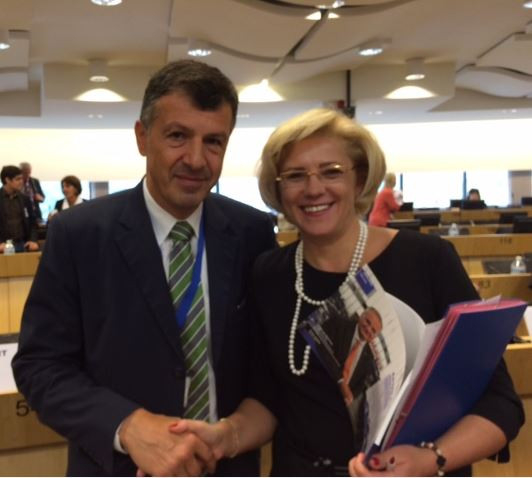Now is the time to reform and improve the EU's Cohesion Policy says Oldřich Vlasák

The European Committee of the Region's (CoR) Commission for Territorial Cohesion Policy (COTER) held a meeting on 6-7 June in Bulgaria, the country currently presiding over the Council of the EU. Bringing together representatives and elected officials from the EU Member States, the meeting took place against the backdrop of the publication of the EU's budget proposal for the period 2021-2027, as well as sectoral legislation on the future of the EU's Cohesion Policy.
This was a crucial meeting, as the CoR, the voice of local and regional authorities (LRAs) in the EU, will play an important role in providing expertise during the legislative process. Members of the COTER Commission had a chance to exchange views with the European Commission's representative, Mr Von Breska from DG REGIO, responsible for drafting the proposals that will determine the future of cohesion spending.
During the meeting ECR Vice-President Oldřich Vlasák (Councillor of the City of Hradec Králové in the Czech Republic), COTER's Deputy-Coordinator of the ECR Group, underlined the importance of local and regional authorities in administering Cohesion Policy and called for more simplified rules so as to lower the administrative burdens. He also noted that while the Czech Republic remains, under the new proposals, one of the main beneficiaries of the EU's Cohesion Policy, the country's allocation will be decreased significantly – by a quarter. This is partly due to its successful economic performance.
Mr Vlasák welcomed the success of the Czech Republic. He warned, however, against unfair redistribution of funds among EU Member States, which could give the impression that countries that do their homework and achieve better economic results get penalised. "Success in the EU should be rewarded," he added. Furthermore, in order to ensure better delivery of EU funds and to match spending with priorities, national authorities should be able to enjoy greater flexibility". "Member States should be allowed to move funds between programmes that they consider most beneficial to their citizens," he concluded.
The EU budget, as well as the particular legislation on Cohesion Policy, will now have to be agreed on by the EU Member States, as well as by the European Parliament. While the European Commission and some Member States, such as Germany, would like the negotiations on the budget to be wrapped up before the EU Parliamentary elections in early 2019, it seems unlikely that the different positions will be aligned in such a short time.

